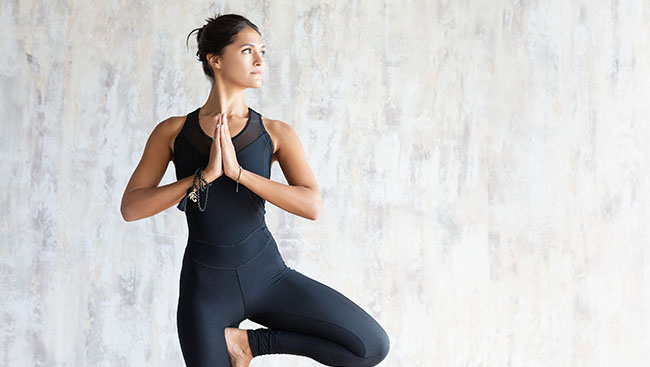To be the happiest, healthiest, and best version of yourself, you need to take control of your wellbeing. This is where self-care comes in.
If there’s one valuable lesson that has come from 2020, it’s that the only constant in your life is you. As a result of lockdowns and social distancing directives, many of us have become isolated from our favourite people, places, and pastimes, leaving us to question whether we can truly be happy without them.
The truth is, your quality of life can significantly improve when you don’t depend on someone or something to make you feel happy. If there are voids in your life, don’t look outwards to fill them - find ways to fill them yourself. To be the happiest, healthiest, and best version of yourself, you need to take control of your wellbeing. This is where self-care comes in.
Physical
When most people hear the term “self-care,” physical self-care is often what comes to mind. Physical self-care refers to any activity you consciously engage in to improve your physical wellbeing. It requires you to actively listen to what your body wants in any given moment and deliver on that. For example, you may tend to your aches and pains with a bubble bath. Or perhaps you’ve spent too much time working at your desk, and you decide to counteract it by going for a run. Being in tune with what your body needs at all times is imperative when it comes to physical self-care.
While physically caring for yourself mostly involves getting enough water, sleep, nutritious food, and exercise each day, it can also include things that make your body feel good. Activities such as using body scrubs, going for pedicures, getting your hair styled, or simply wearing clothing that makes you feel good about yourself and your body, are all a part of physical self-care.
Looking after your physical wellbeing also means not giving your body things that are actively harming it. Treating your body with love by minimizing toxic activities is essential. It would help if you made time in your schedule to regularly engage in activities that both nourish your body and bring you a sense of calm and balance. It would help if you made time in your schedule to regularly engage in activities that both nourish your body and bring you a sense of calm and balance.

Here are some ways to practice physical self-care:
• Doing some form of daily physical activity
• Eating a healthy diet
• Developing a regular sleep schedule
• Resting when you feel unwell
• Going for a massage
• Creating a regular skin-care routine
• Dancing to your favourite song
• Wearing an outfit that makes you feel your best

Emotional
Emotional self-care is a process in which we bring our attention to our emotions and care for them in a way that not only honours them but helps us move forward in a healthy direction. Do you feel like you deal with your emotions in an unproductive way? Or, do they get so out of control that they negatively impact your mood for long periods of time? If so, practicing emotional self-care may be especially useful to you.
Having negative emotions is a normal part of human existence. The goal is not to avoid having negative emotions altogether, but instead to have self-awareness so that you can better understand what’s causing them. Inward observation will give you the clarity you need to resolve the things in your life that are no longer bringing you joy or serving you well.
Many people try to ignore and suppress their emotions, hoping that they’ll disappear altogether. This strategy may seem like the right solution in the short term, but it can do us more harm than good in the long run, as research has shown.

In an article published by Time Magazine, psychotherapist and author Hilary Jacobs Hendel shares why ignoring your emotions is bad for your health: “When the mind thwarts the flow of emotions because they are too overwhelming or too conflicting, it puts stress on the mind and the body, creating psychological distress and symptoms. Emotional stress, like that from blocked emotions, has not only been linked to mental ills, but also to physical problems like heart disease, intestinal problems, headaches, insomnia and autoimmune disorders.” Our ability to regulate our emotions and develop strategies to cope with them as they arise is crucial for our wellbeing. Since life’s challenges and their resulting emotions are constant, the better we become at dealing with negative feelings, the greater our quality of life.
Here are some healthy emotional self-care habits to develop:
Allow yourself to feel
Give yourself the necessary time and space to experience the emotions that come to you. Awareness of your feelings will help alert you to what is and isn’t serving you well in your life.
Get to know your emotional triggers
Once you allow yourself to experience your emotions, you’ll better understand what people, places or things trigger you. Understanding this will help you prepare responses to such triggers and develop coping strategies.
Develop coping strategies
Identify strategies to consciously respond to triggers in a productive way that minimizes harm to yourself and others. Avoid negative self-talk How you speak to yourself plays a significant role in how you feel. Treat yourself with compassion and use language that promotes positive thinking and a positive self-perception.

Social
Human beings are social by nature. Thus, the connections you have with others can significantly impact your health and overall wellbeing. Surrounding yourself with people who make you feel good and inspire you to be the best version of yourself is an important aspect of social self-care.
Social self-care requires you to learn the amount of socializing that is right for you. People often get categorized as extroverts or introverts, but most people fall somewhere in between.
Extroverts gain energy from being around other people. At the same time, introverts recharge by spending time alone and often feel drained when spending too much time with others.
There is no one size fits all solution when it comes to how much time you ought to spend with loved ones. Rather, the goal should be to strike just the right balance for you. It’s important to set boundaries with the people in your life and know when to say no. Actively monitor your feelings to ensure you have both the physical and emotional capacity to be present for others and be mindful of other people’s boundaries too. Communication is the foundation of every healthy relationship. Practice openness and honesty about your feelings with others and share them in a solution-oriented way that also accounts for their feelings as well. Tying it Together In this time of isolation and uncertainty, now is the time to integrate self-care practices into your everyday life. Like the gears in a well-oiled machine, each dimension of self-care operates in harmony to get you where you need to be. If inner happiness is the goal, it’s not enough to focus on just one area of self-care. Instead, dedicate a little bit of time each day to consciously care for your physical, emotional, and social wellbeing so that you can be your best self.





